-
play_arrow
WURD Radio
The Player & The Game: Diversity in Gaming Opens Pathways to New Careers
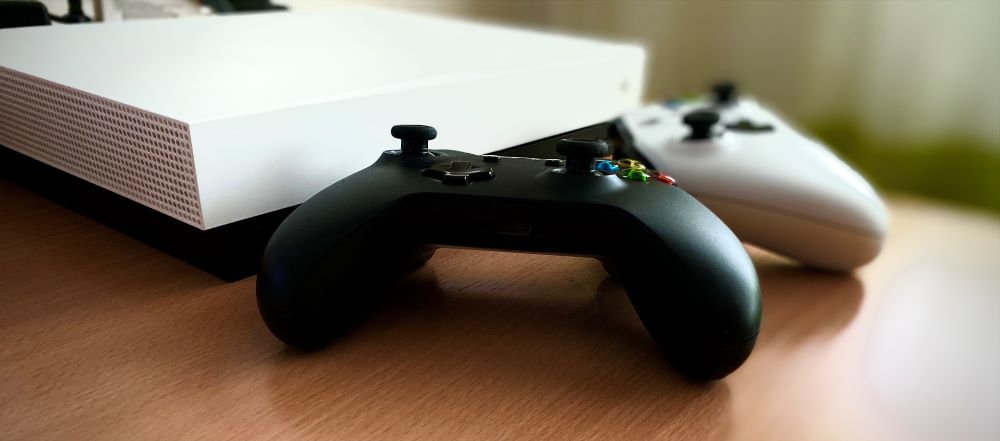
This article was originally published by Love Now Media.
By Annette John-Hall | Love Now Media
Photo credit: Calbert Warner
Nicodemus “Nico” Madehdou dreams big. That’s probably why, since childhood, Madehdou and gaming were a seamless match. You see, when Madehdou played a video game, he didn’t have to speak if he didn’t want to. That felt like a blessing to a kid like Nick, an immigrant from Liberia who was extremely self-conscious about his accent when his family first settled in Northeast Philadelphia in 2004.
“I didn’t even know anybody, but it didn’t matter that I didn’t fit in because nobody could see me behind a computer screen,” he said.
Gaming allowed his dreams to take flight. While soaring, gliding, jumping and spinning, Madehdou could escape anything and go anywhere, fight wizards, or go on quests and solve mysteries in environments of his choosing. Video games gave him space to dream up a vision for a career. Early on, he knew his life’s work would have something to do with the gaming industry.
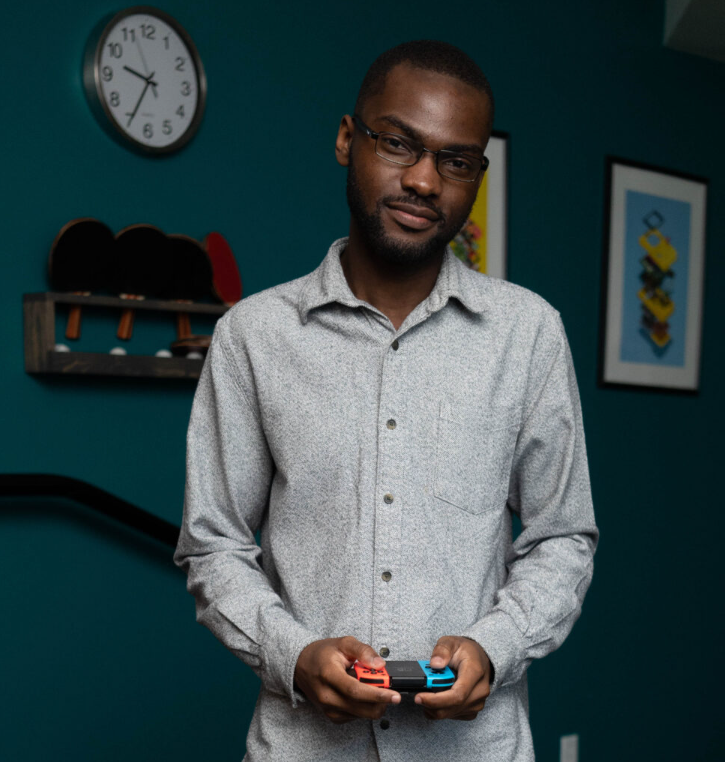
“Knowing what games could do,” he said, “and also realizing I didn’t see a lot of people like me in the space – it made me interested in pursuing what games could be long-term.”
But as much as Madehdou is a dreamer, he’s also a straight-up realist. He knew gaming was his future but knew he didn’t want to go into debt before he even got started.
“I had heard a lot of horror stories about college and debt, and I was trying to avoid all those things,” he said.
He tried going the conventional route, applying for internships at tech giants like Apple, Google and Comcast, but the gatekeepers of convention wouldn’t let him. “ told me I had to be in college first.”
So just like that, Maadehdou launched Philadelphia-based JumpButton Studio with two like-minded people and assembled a diverse team of about 20 young tech creatives. In 2018, he began his unlikely journey of entrepreneurship becoming a CEO at the tender age of 21.
JumpButton’s mission is “to create products that solve problems, evoke change and inspire creativity through games and animation,” Madehdou said. “Our vision is to reimagine diversity and inclusion through the games and animation industry.”
His vision and mission are needed now more than ever. Since the pandemic, the global gaming industry, valued at nearly $200 billion, saw a surge in demand and is expected to keep growing, according to Accenture. Yet, the International Game Developers Association (the nonprofit that provides snapshots of the industry’s demographics) reports that in 2021 only 4 percent of those responding to its survey identified as Black.
All the more reason to push for more people of color on the front lines of gaming, according to Madehdou. It not only makes good economic sense, it just makes sense, period.
“If you don’t see yourself at the table, then the things that companies are making are not going to relate to you,” he said. “So if you’re playing a game by a company with an all-white team, and there’s a Black character in the game, it’s likely that the hair will be off. Or it’ll be like, ‘Why is there a hitch in his step when walk regular? So there are layers of contextual knowledge that get removed when you don’t have a diverse team.”
Where to start? For JumpButton, it’s on the ground level. His team goes out to talk with Black and Latino students in elementary and middle schools, letting them know that if they’re interested in games or animation as a career, there could be a place for them without having to leave Philly or wherever they live.
“Just because you look at the of the bigger brands and you see all these white faces that look nothing like you – if you’re a Black kid, you may think, okay, let me just be a YouTuber, because you see a lot of Black people vlogging and that’s something you can relate to.”
JumpButton works to change or expand that narrative by telling students what is possible, what their options are, and how they can get into the pipeline. At the same time, the company is working hard to scale up, so that at some point, they can offer internships to local students from elementary school through college.
If the students who attend Murrell Dobbins Career and Technical Education High School are any indication, there won’t be a shortage of interest. They represent hundreds if not thousands of Black and Latino teens who are obsessed with gaming in the Philadelphia area — but they don’t have the resources or access to learn more about gaming as a career.
“I watched what kids were doing in their free time. They were watching YouTube of other people playing games,” said Anis Taylor, who teaches digital media at Dobbins. “They wanted to learn skills and tricks, just like if we were watching basketball and wanted to get better, we would watch Kobe practice.”
Dobbins recently hosted a gaming seminar where industry professionals spoke to students about creative aspects of games, such as music and audio, drone operations and overall opportunities. Surprisingly, gaming is still not part of Dobbins’ digital curriculum but Taylor expects it soon will be.
“There’s a ton of jobs in that space that you can get yourself involved in. We want to teach them that you don’t have to be in this industry to consume the game. You can actually produce the game,” Taylor said.
Meanwhile, JumpButton Studio continues to grow. The company already has a relationship with Snapchat and is working on projects with the animated sitcom “Boondocks.” Last week in Los Angeles, Madehdou met with executives from Niantic, makers of Pokemon GO, to discuss potential projects around games and animation.
At 25, Madehdou has even bigger dreams. He wants JumpButton to become the first major Black-owned gaming company in the world. He wants to create generational wealth for his family. He already has a head start in cornering the market as a Black gaming executive. But he doesn’t want to be the only one.
“I hope Black kids join our journey and are inspired to go off and do their own thing,” he said. “Because I’m not looking to control the space. I’m looking to create more owners in the space.”
Nicodemus Madehdou is doing just that, having evolved from playing games in anonymity to being a beacon who makes sure kids like him can see themselves in the games they play and the industry that creates them.
THE WURD WEEKLY NEWSLETTER
Black Talk Media sent straight to your inbox.
BECOME A MEMBER
The forWURD Movement is your way to
protect and preserve Independent Black Media.
Written by: Associated Contributor
Featured post
Latest posts

Teens Cultivate Soil and Safety at Sankofa Community Farm

This week on WURD: Musiq Souldchild shares his journey, PA’s budget delays, Sherri Shepherd’s latest role

This week on WURD: Philly teachers on strike, SEPTA’s funding issues, Sankofa through farming

This week on WURD: I.C.E. in Los Angeles, “No Kings Coalition” march, Philly Black business market
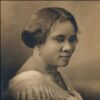
This week on WURD: Lemon Hill shooting, first Black Heiress, Trump’s executive order
Current show
Upcoming shows

Wake Up With WURD
7:00 am - 10:00 am
Reality Check
10:00 am - 1:00 pm

Keepin’ It Real with Rev. Al Sharpton
1:00 pm - 4:00 pm

Evening WURDs
4:00 pm - 7:00 pm

The Tavis Smiley Show
7:00 pm - 10:00 pm
WURD Radio LLC © 2012-2021. All rights reserved.



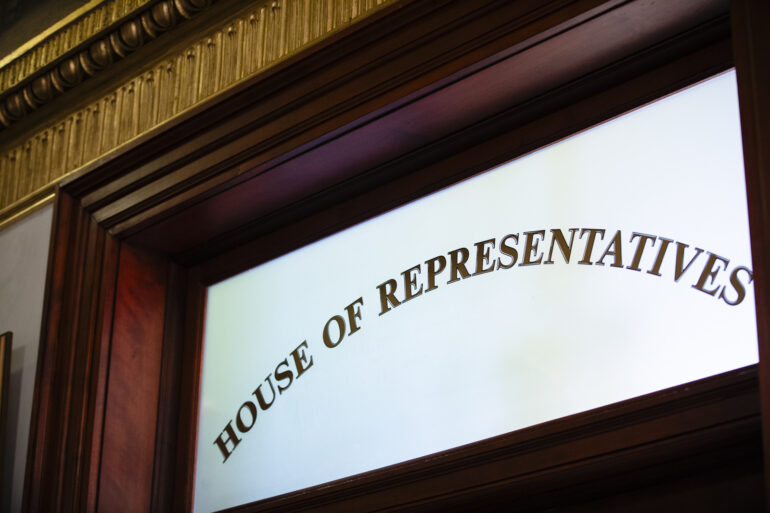

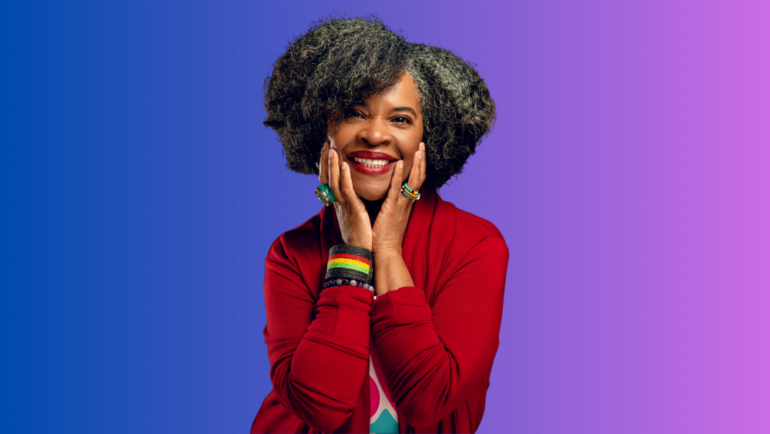

Post comments (0)